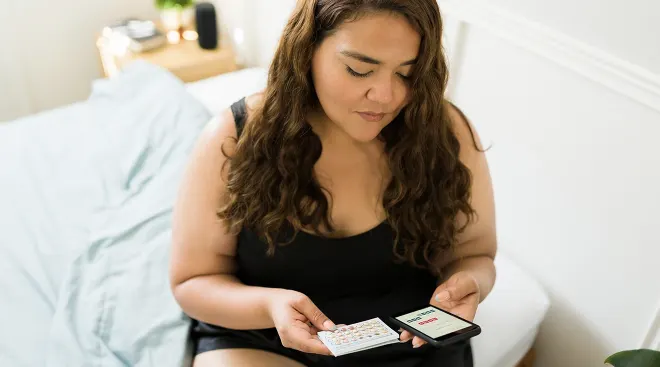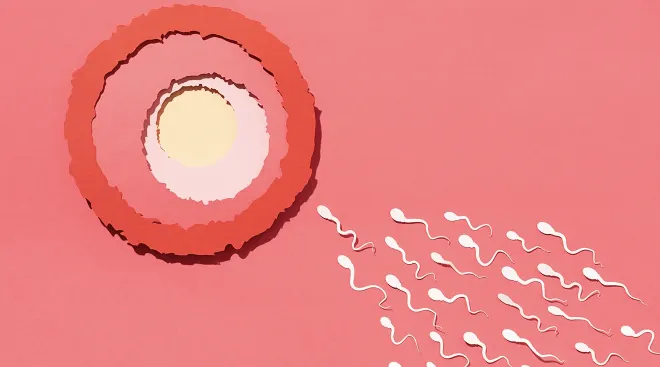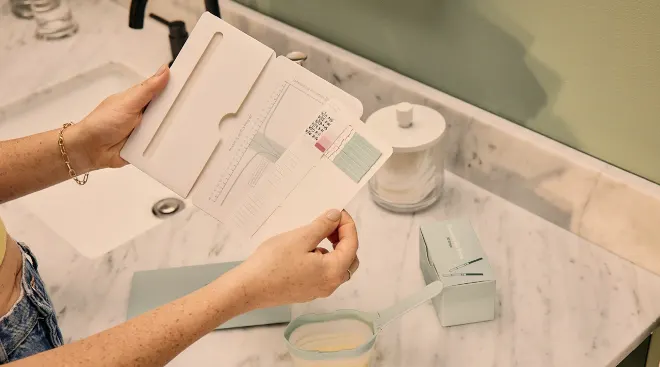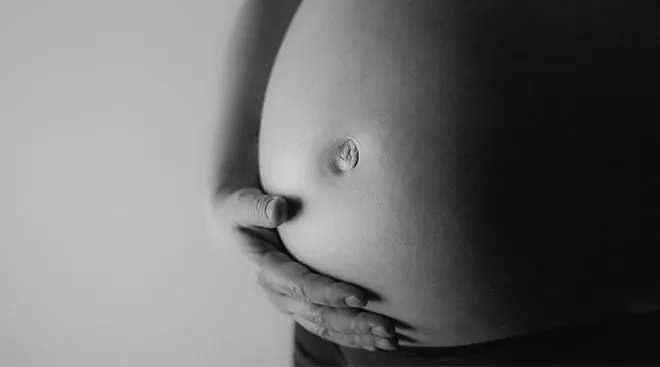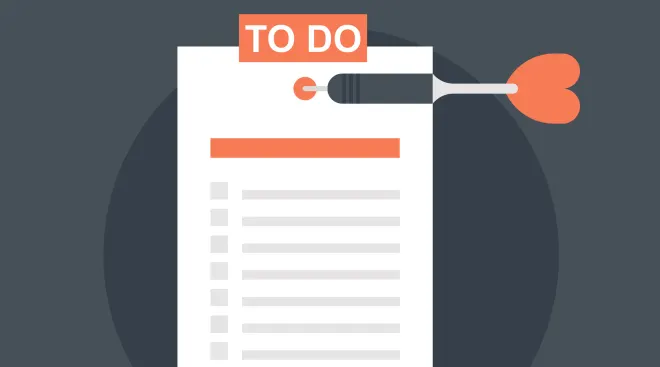IUI: Your Guide to Intrauterine Insemination
Life is all about the journey. But the path to parenthood might not be as smooth as you envisioned. If you need help conceiving, you may choose to start your fertility journey with intrauterine insemination (IUI). It’s a relatively less invasive and less expensive way than in vitro fertilization (IVF) to boost the chances of conception. Wondering if IUI is the right next step for you on the road to becoming a parent? Below, we share everything you need to know about the IUI procedure, process, cost, success rate and more.
Intrauterine insemination (IUI) is a fertility treatment that involves deliberately placing sperm inside a woman’s uterus around the time of ovulation to assist fertilization. The purpose of IUI, which is almost always performed by a fertility doctor or nurse in an office setting, is to increase the number of sperm that reach the fallopian tubes and improve the chances of fertilization.
IUI vs. IVF
Many hopeful parents opt for a round or two of IUI as a first step before pursuing in vitro fertilization (IVF), notes Laura Smith, MD, a reproductive infertility and endocrinology physician at Virginia Fertility & IVF and an associate professor at the University of Virginia. IVF is a more aggressive series of medicated procedures where an egg is fertilized by sperm outside of the body and then transferred to a uterus. While IVF boasts higher pregnancy success rates and works for more specific fertility issues than IUI, it’s also more physically taxing and expensive. “IUI is much more commonly used as a way by insurance companies to keep people from moving to what they need [to do],” says Paul Magarelli, MD, a reproductive endocrinology and infertility specialist at CNY Fertility.
ICI vs. IUI
IUI and intracervical insemination (ICI) are both forms of artificial insemination. But ICI—more casually known as the turkey baster method—is typically done yourself at home, whereas IUI is performed by a fertility specialist using a speculum and catheter to place specially prepared semen far into your uterus.
With an ICI, sperm is put into a syringe that you insert into your vagina. “ICI is something couples, including same-sex female couples, can attempt if there are issues with intercourse, sexual dysfunction or need to use donor sperm,” says Salli Tazuke, MD, co-founder and co-medical director of CCRM San Francisco. While there are the financial and creature-comfort benefits to being at home and trying ICI yourself, fertility doctors generally recommend going right to IUI. “We don’t do ICI because as a clinic, we want to do the one—IUI—that has the highest chance of pregnancy,” says Smith.
If you’re less than 35 years old and you’ve been trying to get pregnant for 12 months, or if you’re older than 35 and you’ve been trying for six months, you may want to seek help from a fertility specialist, according to the American College of Obstetricians and Gynecologists (ACOG). You’ll go through a fertility workup, or a series of blood tests and ultrasounds that examine your ovarian reserve, uterine shape, tubal shapes, hormone levels and your partner’s sperm. If the results show slight abnormalities and irregularities in your partner’s semen but your own results look good, you’re a good candidate for IUI, says Smith.
“It’s used generally for everyone, but ideally [IUI] is for folks with no access to sperm or very young people with lots of eggs, maybe some male factors,” says Magarelli.
Unlike ICI where sperm is placed into the vagina, IUI aims to shorten the distance between sperm and an egg by depositing sperm directly into the uterus. Your fertility doctor may prescribe medications at the beginning of your cycle to encourage your ovaries to release multiple eggs, says Smith. Just before the IUI procedure your partner’s sperm is prepped and washed; it’s a process that extracts the strongest sperm into a small amount of fluid. At the time of ovulation, the sperm is placed via catheter into your uterus close to the fallopian tube, where there’s more of a chance that a good number of sperm can reach the egg, says Tazuke. “It’s estimated that about one hundred times more sperm reach the uterus with IUI compared to natural intercourse,” she says.
Your insurance provider may cover some or all costs of certain fertility treatments. CNY Fertility notes that IUI can range in cost from a few hundred dollars to as much as $4,000 for a single cycle. The three elements that impact IUI cost are monitoring and bloodwork, medication and the insemination procedure itself. "It depends on the practice and approach,” says Magarelli. “I would say typically it’s $1,500.”
If your fertility team prescribes fertility medications, you’ll start them early in your menstrual cycle. Your ovulation will be monitored either with a home ovulation kit or by ultrasound in the clinic, says Smith. You’ll then call the clinic when you’re at peak fertilization or when clinicians can see that your follicles are 18 millimeters in diameter, says Magarelli. Your doctor may prescribe an hCG injection—the trigger shot—which stimulates ovulation; once this happens, your IUI will be scheduled within 36 hours.
On the day of your IUI appointment, you’ll hand over the sperm sample—either from your partner or donor—which takes about an hour to wash, says Smith. The IUI procedure takes less than five minutes and you may be encouraged to rest on the exam table for a little bit after the procedure.
Smith likens the process to getting a pap smear: After lying down on the exam table and putting your feet into stirrups, your doctor or nurse will insert a speculum and a thin, flexible catheter with a vial of healthy sperm on the end. They’ll thread the catheter into your vagina, through the cervical opening and into your uterus, where they will push the sperm sample through the tube.
Does IUI hurt?
Intrauterine insemination might not be entirely comfortable, but it’s not particularly painful either. “There may be a little bit of cramping as the sperm is injected, and some women are more sensitive than others to the feeling of the catheter through the uterus, but in general it’s not a painful procedure,” says Smith.
Your fertility team may have you lay on the table for a few minutes after your IUI procedure, although there’s no data to suggest that being there longer in any particular position is better, says Smith. “In general, there aren’t any side effects,” she says. “You can have intercourse the day of IUI or the day after; you can do jumping jacks all the way down the hallway and resume normal exercise.”
You may experience some light spotting or mild cramping after IUI. According to the University of South Florida Health, cramping after your IUI procedure could be caused by the catheter irritating your uterus or by ovulation, especially if you took fertility medications and are releasing multiple follicles. Severe cramps are unusual, and you should call your provider if you have them, as well as if you have a fever and/or an unusual vaginal discharge.
So how soon can you take a pregnancy test after IUI? You’ll have to wait it out a full 14 days. Fertility experts urge patients to avoid the temptation to test earlier than the two-week mark. The trigger shot you got can give a false positive; it takes time to filter that out of your system, according to USF Health. Call your fertility clinic after you take your test, regardless of whether it’s positive or negative, so you can get set up with the appropriate next steps. If you test positive, you’ll go in regularly to have your pregnancy—the yolk sac—monitored. If you’re negative, you may want to consider another round of IUI or start a different fertility treatment course.
The blanket IUI success rate for everyone is roughly 8 percent, but that goes down as you get older, says Magarelli. Success depends on many variables, but age and the use of fertility medications are the two biggest factors. Generally, IUI cycles have success rates per cycle of between 5 percent and 15 percent; if a couple repeats the procedure for a few consecutive months, success rates may reach as high as 20 percent per cycle, according to the American Pregnancy Association.
A typical IUI roadmap includes three rounds; your fertility doctor probably won’t recommend having more than six. “If you get pregnant [with IUI], you’ll do it within the first six,” says Magarelli. “What fertility treatment does is accelerate achieving the pregnancy, it doesn’t get you pregnant.”
Some women and couples who’ve had successful IUIs contribute part of their triumph to healthy lifestyle habits, such as eating a balanced diet and taking in less sugar, less alcohol and limited caffeine. What’s more, there are other small proactive steps you and your plus-one can take. “It’s critical to involve your partner,” says Magarelli. It’s best if your sperm donor doesn’t smoke and isn’t continually overheating their testicles—so no Lycra bike shorts and no sitting in hot tubs all the time, he says. A few other things that may improve your IUI success rate:
- Follow through with fertility testing. Same-sex female couples shouldn’t skip fertility testing, says Magarelli. “Lack of access to sperm might not be the only reason they’re not getting pregnant,” he says.
- Take a prenatal vitamin with folic acid. Yes, it’s important during pregnancy, but studies have found that it can also help boost fertility.
- Fertility medications. Talk to your doctor about hormone medications that stimulate your ovaries to release more than one egg at a time; they may increase your fertilization chances.
- Limit high-intensity exercise. Focus instead on lower-intensity exercise like walking, yoga or Tai Chi, CNY Fertility advises.
- Prescription medications. Conditions like endometriosis or PCOS could impact your fertility, as could things like high blood pressure, notes CNY. Some of these issues can be managed with prescription meds, which your doctor can talk you through.
A search of the #IUIbaby and #IUIsuccess hashtags on Instagram shows dozens of IUI success stories: pictures of drowsy newborns and smiling toddlers with their families, which include single moms, same-sex female couples and other families who needed help with fertilization.
After trying for almost a year without getting pregnant, Joanne and her husband went to a fertility clinic for testing. Joanne, then 35 years old, was diagnosed with a low egg count and her husband was found to have oddly shaped sperm, which fertility experts call a low morphology rate. Her doctor told her their ability to procreate on their own was just about 5 percent. “We explored our options, and while IVF was [predicted to be] the most effective, it was extremely expensive, invasive and not covered by our insurance.” Joanne’s insurance would cover up to three rounds of IUI. “It was the obvious next step,” she said.
She had her first insemination in January 2020, two weeks after starting a course of the fertility drug Clomid, which helps women produce more mature eggs per cycle. When her period came a couple weeks later, there was no respite before preparing for the next IUI round. “It feels like you’re on a constant hormone surge,” she said.
The pregnancy test she took on Valentine’s Day, 14 days after her second IUI, was positive, but she wasn’t able to fully relax just yet. “Most women find out they’re pregnant at five or six weeks when they miss a period,” she says. “When you find out you’re pregnant with IUI, you’re two weeks, which is not really a natural time to find out—for all you know, you’re waiting for your next period.”
After a month or so of going into the clinic three times a week to have her yolk sac monitored, she was finally transferred to an ob-gyn. She gave birth to a healthy baby boy in October. “I was given really terrible odds for conceiving naturally,” she says. “While I know that IUI is not guaranteed, I don’t understand why more people aren’t willing to do IUI a couple of rounds before they try IVF.”
Courtney and Sabrina, a same-sex couple in California, were looking for the most natural way to conceive—they didn’t want fertility medications and they didn’t want to start with IVF. It took eight rounds of IUI before they found success. At 30 years old, Sabrina had her first IUI in early winter; the second round, a few weeks later, resulted in miscarriage. “We didn’t anticipate it taking as long as it did—you think you’ll go in and she’ll get pregnant and that’s it,” says Courtney.
Eventually the couple opted for hormone injections with IUI, a last-ditch effort before moving on to IVF. “It was our last IUI attempt—the eighth one—that worked,” said Courtney. They took a pregnancy test on Mother’s Day; although they tested positive, they were instructed to wait a few more weeks before going to see their doctor. “At week 6 or 7, Sabrina started experiencing similar symptoms that she had with the miscarriage—bleeding, cramping,” says Courtney. The couple went in, had an ultrasound and it turned out that Sabrina was indeed pregnant—with triplets. “Most people see we have triplets and assume we did IVF because of the high chance of multiples,” says Courtney, whose two sons and daughter are nearly 2 years old. “It’s definitely a blessing.”
About the experts:
Paul Magarelli, MD, is a reproductive endocrinology and infertility specialist at CNY Fertility. He received his medical degree from University of Arizona College of Medicine.
Laura Smith, MD, is a reproductive infertility and endocrinology physician at Virginia Fertility & IVF and an associate professor at the University of Virginia, where she also earned her medical degree.
Salli Tazuke, MD, is the co-founder and co-medical director of the reproductive health clinic CCRM San Francisco. She earned her medical degree from the University of California San Diego.
Please note: The Bump and the materials and information it contains are not intended to, and do not constitute, medical or other health advice or diagnosis and should not be used as such. You should always consult with a qualified physician or health professional about your specific circumstances.
Plus, more from The Bump:
Navigate forward to interact with the calendar and select a date. Press the question mark key to get the keyboard shortcuts for changing dates.




































